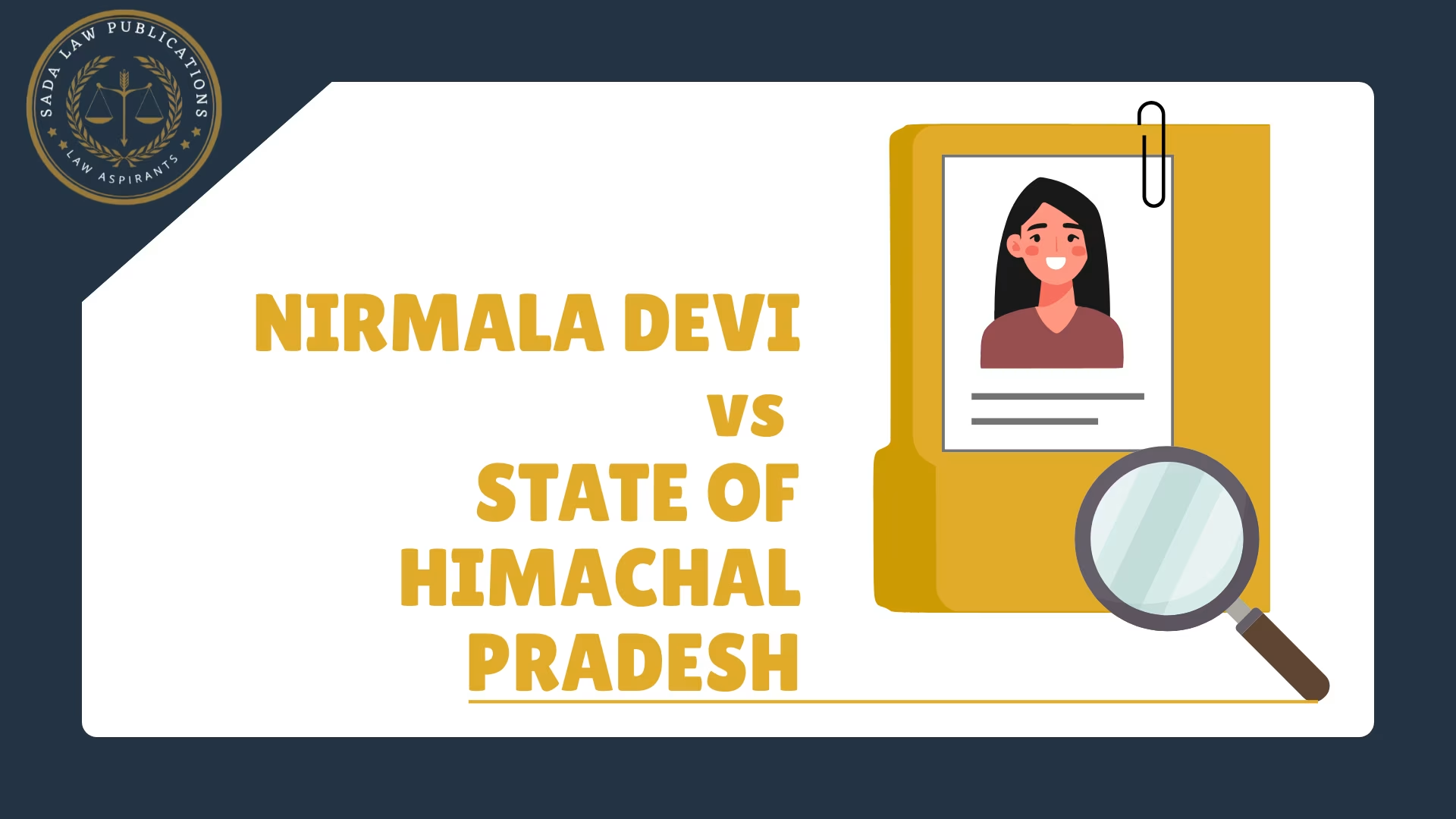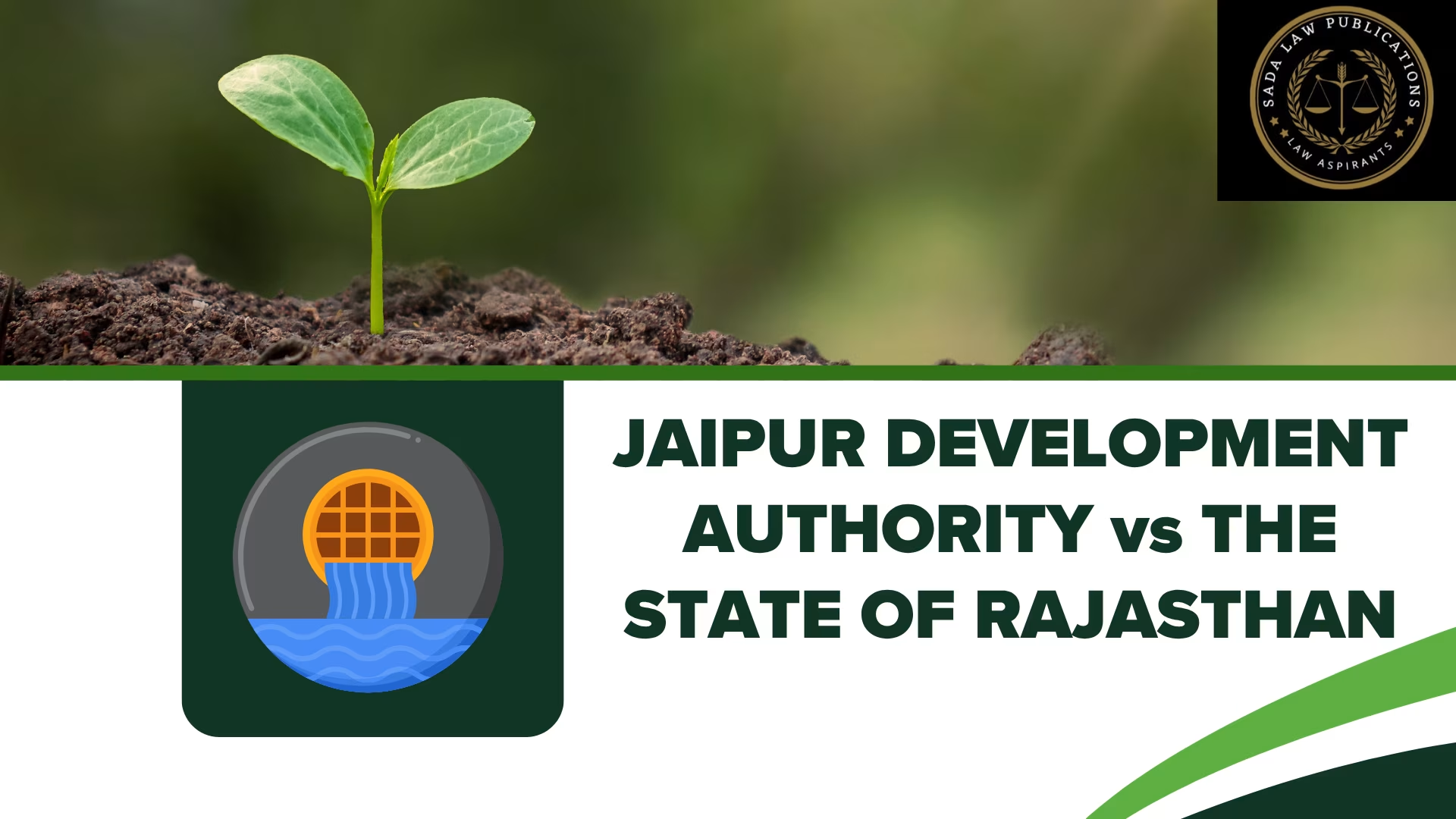Nirmala Devi v. State of Himachal Pradesh (2023)
- Nisha Kumari
- 14 October, 2025

Introduction
The case of Nirmala Devi v. State of Himachal Pradesh was decided by the Supreme Court of India on 1 August 2023. It stemmed from a tragic domestic altercation where Nirmala Devi was accused of killing her husband, Mast Ram, during a heated argument. Initially convicted for murder under Section 302 IPC, she was sentenced to life imprisonment by the Trial Court, and the Himachal Pradesh High Court upheld the verdict.
Before the Supreme Court, the main issue was whether the act constituted murder (Section 302 IPC) or should be reclassified as culpable homicide not amounting to murder (Section 304 Part I IPC). The Court examined the intent, circumstances, and degree of provocation to determine the true nature of the offence.
Facts of the Case
The incident occurred in May 2015 at the residence of Nirmala Devi and her husband, Mast Ram, in Himachal Pradesh. On the day of the event, a domestic dispute broke out when their daughter, Priyanka (PW-1), requested ₹500 from her father to attend an NCC camp. Mast Ram refused, leading to an argument between the couple.
During the quarrel, Nirmala Devi, in a fit of anger, struck her husband multiple times with a wooden stick, causing severe injuries that led to his death. Their daughter witnessed the incident and testified as a
prosecution witness.
It was also brought on record that the couple had a history of domestic violence—including a prior incident in which Mast Ram had fractured Nirmala’s leg. The prosecution alleged that after the assault, Nirmala tried to clean the blood and conceal evidence.
The Trial Court convicted her under Sections 302 and 201 IPC, sentencing her to life imprisonment, and the High Court upheld the same. Nirmala Devi then appealed to the Supreme Court.
Issue of the Case
Whether the death of Mast Ram caused by Nirmala Devi amounted to murder under Section 302 IPC, or should be considered culpable homicide not amounting to murder under Section 304 Part I IPC, taking into account the sudden provocation, absence of premeditation, and the domestic circumstances surrounding the act.
Judgment
The Supreme Court analyzed the evidence, circumstances, and intent behind the act and concluded that the offence did not constitute murder under Section 302 IPC. The Court held that:
The incident occurred in the heat of the moment during a sudden quarrel, without pre-planned intent to kill.
The weapon used, a wooden stick, was not inherently lethal or typically used to cause death.
There was no motive or premeditation to commit murder.
The act was triggered by sudden provocation, fitting within Exception 1 to Section 300 IPC.
Considering the history of domestic abuse, the Court recognized that the accused acted under emotional distress.
Accordingly, the Court set aside the conviction under Section 302 IPC and modified it to Section 304 Part I IPC (culpable homicide not amounting to murder). The sentence was reduced to a term appropriate to the lesser offence.
Conclusion
In conclusion, the Supreme Court held that while Nirmala Devi’s actions led to her husband’s death, the act occurred under sudden provocation and lacked malicious intent. The judgment acknowledged the domestic violence background and the spontaneous nature of the incident.
The Court reclassified the offence as culpable homicide not amounting to murder (Section 304 Part I IPC), ensuring that the punishment reflected both the gravity of the act and the mitigating circumstances. This decision underscores the judiciary’s commitment to balancing justice with compassion, distinguishing between deliberate murder and spontaneous acts committed in emotional turmoil.





